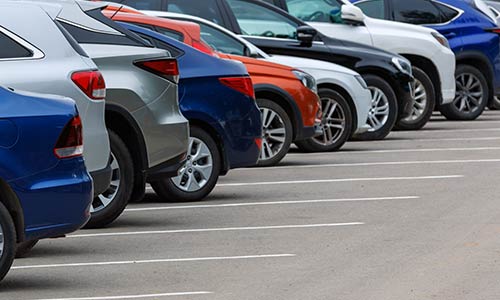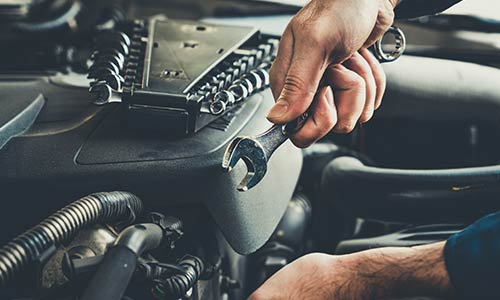
Does a new engine increase the value of my car?
Last updated October 10, 2022
If you’re thinking about selling your car, you may want to do all you can to increase the value and receive the best price for your vehicle. This might mean repairing minor and major faults, or touching up the paintwork to make it look as good as new - but what about replacing the engine?
One of the biggest factors affecting the value of your car is how it runs. If the engine is old and run-down, test drivers will be able to hear this and will expect the price to be lowered. However, if your car runs smoothly, you can expect it to fetch a higher price. Replacing the engine has a considerable up-front cost, but it will increase the value of your car overall.
However, this increase may not be significant enough to justify the cost. Read on to discover how a new engine can increase the value of your car, and the potential drawbacks this may have.
Value your car in under 30 seconds
Why does a new engine increase value?
Replacing your car’s engine will enhance the performance, as the new engine won’t have any of the wear and tear of the original.
No one is going to want to buy your car without giving it a thorough check and most likely a test drive, particularly if you plan on selling privately. If your engine doesn’t sound up to scratch, they won’t want to buy your car; it really is that simple.
Is getting a new engine like getting a new car?
Not quite - this depends on the reason why you got a new engine. If you’ve replaced the engine in a classic car, for example, the engine simply replaces one that was damaged from years’ worth of wear and tear, and adding a new engine simply eliminates this issue.
However, if you’ve been in a serious car accident, there may be other faults with the car other than the engine, and these could potentially be quite serious. In this case, a new engine wouldn’t solve all your problems. It could still increase the value slightly, but it might could also cost you more money than it’s worth.
When does a new engine devalue a car?
In certain circumstances, replacing the engine can have a negative impact. Potential buyers might be concerned that the engine wasn’t replaced by a qualified mechanic, meaning the car isn’t safe to drive. They might assume you’re trying to hide the car’s accident history, or that there is something wrong with the car in general.
How much value can a new engine add to my car?
There is no definitive answer to this question, as it depends on a lot of factors, such as what your car was already worth and the vehicle’s overall condition. You should have a qualified mechanic give you an estimate, as this can only really be given on a case-by-case basis.
Does a new engine reset mileage?
No, replacing your car’s engine won’t reset its mileage. The odometer is connected to the front wheel hub rather than the engine, and any changes made to the engine, even as far as replacing it - won’t affect the odometer. You can only reset the mileage by tampering with the odometer.
Where can I buy an engine?
You can buy a new engine from an auction, online or from a spare parts company. You might even be able to source one via your local mechanic.
How much does a new engine cost?
This is entirely dependent on the individual circumstances. An engine could cost anywhere from £650 to in excess of £5000, so this will depend on what kind of engine you need, the size of the engine, and how difficult it is to source.
How long does it take to change a car engine?
Generally, it could take between 8-12 hours to change your engine, but it could take even longer. A easy simple engine installation with a skilled mechanic performing the swap would fall on the lower end of this spectrum, but the more complex the job, the longer it will take.
If I replace my car’s engine, do I need to tell the DVLA?
Yes - you will need to inform the DVLA of the change of your engine number, so that they can record it. Then, they’ll send you a new V5C logbook. Following this, you will need to provide the DVLA with a copy of the receipt for the replacement engine.
What are the potential problems following engine replacement?
You should always be conscious that a problem may arise after you’ve replaced the engine in your car. You might notice oil leaks, some unusual sounds or that your car isn’t performing to its full capacity. When your engine has been replaced, you should have the car checked thoroughly to ensure that no vital components have been damaged along the way.
What are the alternatives to a new engine?
-
Rebuilt and remanufactured engines
Choosing a rebuilt or remanufactured engine is almost always cheaper than buying a new engine, however this does again depend on the circumstances.
-
Repair your existing engine
If the damage is minimal, you may be able to have your engine repaired. However, if the damage is too great, then this may not be an option.
-
Selling a car that needs a new engine
You can always sell your car without repairing or replacing the damaged engine, but you should expect a lower valuation for your car than if the engine was in good working order.










